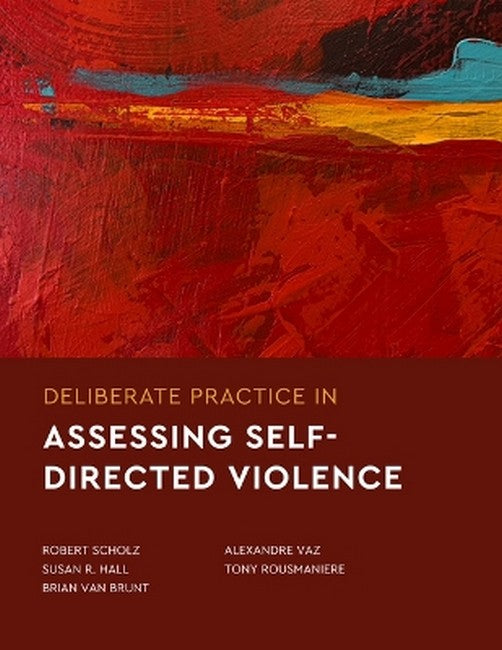Robert Scholz, MA,LMFT, LPCC, founder of The Change Place, Inc., is a marriage and family therapist and professional clinical counselor. He is well-known for his work as a trainer and consultant in assisting schools and communities prepare for and respond to major crisis events like wildfires, mass shootings, and suicides. A member of the Motivational Interviewing Network of Trainers, Robert has trained thousands in motivational interviewing skills and other evidence-based therapeutic approaches. He has authored publications on disaster mental health, addiction treatment, threat assessment, and men's mental health. Susan R. Hall, JD, PhD, is a tenured associate professor of psychology at Pepperdine University's Graduate School of Education and Psychology. She has published and presented nationally on topics related to clinical/counseling practice and training; trauma and positive psychology; and psychology, public policy and law, including two APA books: Courtroom Modifications for Child Witnesses and Laws Affecting Clinical Practice. Dr. Hall served on the editorial board of the Journal of Youth and Adolescence, was treasurer for APA's Society for Child and Family Policy and Practice (Division 37), and received Pepperdine's Howard A. White Award for Excellence in Teaching. Brian Van Brunt, EdD, is director of behavior and threat management for D-Prep Safety and the president of the Workplace Violence Prevention Association. Author of over a dozen books, Brian has worked as a child and family therapist, university professor, assistant deputy director of training at Secure Community Network, and president of the National Association for Behavioral Intervention and Threat Assessment. He is an internationally recognized expert in behavioral intervention, threat assessment, crisis preparedness, mental illness, and instructional design. Brian has provided consulting services to schools around the world on student mental health, counseling, campus violence, and behavioral intervention. Alexandre Vaz, PhD, is cofounder and chief academic officer of Sentio University and the Sentio Counseling Center. He provides workshops, webinars, and advanced clinical training and supervision to clinicians around the world. Dr. Vaz is the author/coeditor of over a dozen books on deliberate practice and psychotherapy training. He has held multiple committee roles for the Society for the Exploration of Psychotherapy Integration (SEPI) and the Society for Psychotherapy Research (SPR). Dr. Vaz is founder and host of Psychotherapy Expert Talks, an acclaimed interview series with distinguished psychotherapists and therapy researchers. Tony Rousmaniere, PsyD, is cofounder and program director of Sentio University and the Sentio Counseling Center. He provides workshops, webinars, and advanced clinical training and supervision to clinicians around the world. Dr. Rousmaniere is the author/coeditor of many books on deliberate practice and psychotherapy training. In 2017, he published the widely cited article in The Atlantic Monthly, "What Your Therapist Doesn't Know." Dr. Rousmaniere supports the open-data movement and publishes his aggregated, deidentified clinical outcome data on his website (https://drtonyr.com/). Dr. Rousmaniere is past president of the American Psychological Association's Division 29 (the Society for the Advancement of Psychotherapy).
Request Academic Copy
Please copy the ISBN for submitting review copy form
Description
Series Preface Tony Rousmaniere and Alexandre Vaz Acknowledgments Part I. Overview and Instructions Chapter 1. Introduction and Overview of Deliberate Practice in Assessing Self-Directed Violence Chapter 2. Instructions for the Self-Directed Violence Assessment Deliberate Practice Exercises Part II. Deliberate Practice Exercises for Self-Directed Violence Assessment Skills Exercises for Beginner Self-Directed Violence Assessment Skills Exercise 1. Exploring the Meaning of Client Statements Exercise 2. Assessing Precipitating Factors Exercise 3. Asking Scaling Questions Exercise 4. Exploring and Encouraging Social Support Exercises for Intermediate Self-Directed Violence Assessment Skills Exercise 5. Safety Planning Exercise 6. Working With Ambivalence Exercise 7. Using Self-Directed Violence Assessment Measures Exercises for Advanced Self-Directed Violence Assessment Skills Exercise 8. Providing Rationales for Focusing on Self-Directed Violence Exercise 9. Responding to Ruptures in the Therapeutic Alliance Exercise 10. Communicating Therapist Boundaries and Responsibilities Comprehensive Exercises Exercise 11. Annotated Transcript of Self-Directed Violence Assessment in a Psychotherapy Session Exercise 12. Mock Sessions for Self-Directed Violence Assessment in Psychotherapy Part III. Strategies for Enhancing the Deliberate Practice Exercises Chapter 3. How to Get the Most Out of Deliberate Practice: Additional Guidance for Trainers and Trainees Appendix A. Difficulty Assessments and Adjustments Appendix B. Deliberate Practice Diary Form Appendix C. Sample Self-Directed Violence Assessment and Psychotherapy Skills Syllabus With Embedded Deliberate Practice Exercises References Index About the Authors

